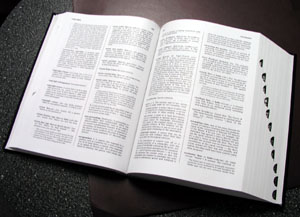
This glossary was created and/or compiled from the participants of the OpenAIRE train-the-trainer bootcamps
Special | A | B | C | D | E | F | G | H | I | J | K | L | M | N | O | P | Q | R | S | T | U | V | W | X | Y | Z | ALL
L |
|---|
LicenceLicence is a written agreement by means of which the copyright holder
defines the rights granted to the users. In a digital environment,
standardised licences based on a set of predefined reuse conditions,
such as Creative Commons, are used. Licences for digital objects are machine readable. | ||
License1 A: permission to act B: freedom of action 2 a: a permission granted by competent authority to engage in a business or occupation or in an activity otherwise unlawful b: a document, plate, or tag evidencing a license granted c: a grant by the holder of a copyright or patent to another of any of the rights embodied in the copyright or patent short of an assignment of all rights 3 a: freedom that allows or is used with irresponsibility Freedom of the press should not be turned into license. b: disregard for standards of personal conduct : LICENTIOUSNESS | |
Linked DataA collection of interrelated datasets on the Web can also be referred to as Linked Data. A typical case of a large Linked Dataset is DBPedia, which, essentially, makes the content of Wikipedia available in RDF. Linked data is possible when data on the Web is available in a standard format, reachable and manageable by Semantic Web tools. The collection of Semantic Web technologies (RDF, OWL, SKOS, SPARQL, etc.) provides an environment where applications can query that data, draw inferences using vocabularies, etc. https://www.w3.org/standards/semanticweb/data W3C > Standards > definition
| ||
Linked Open Data (LOD)Definition: Linked Open Data (LOD) defines a vision of globaly
accessible and linked data on the internet based on the RDF standards of
the semantic web. LOD is often thought of as a virtual data cloud where
anyone can access any data they are authorized to see and may also add
to any data without disturbing the original data source. This provides
an open environment where data can be created, connected and consumed on
internet scale. A basic theory of LOD is that data has more value if it
can be connected to other data. Data, in this context, is any
structured web-based information. | |